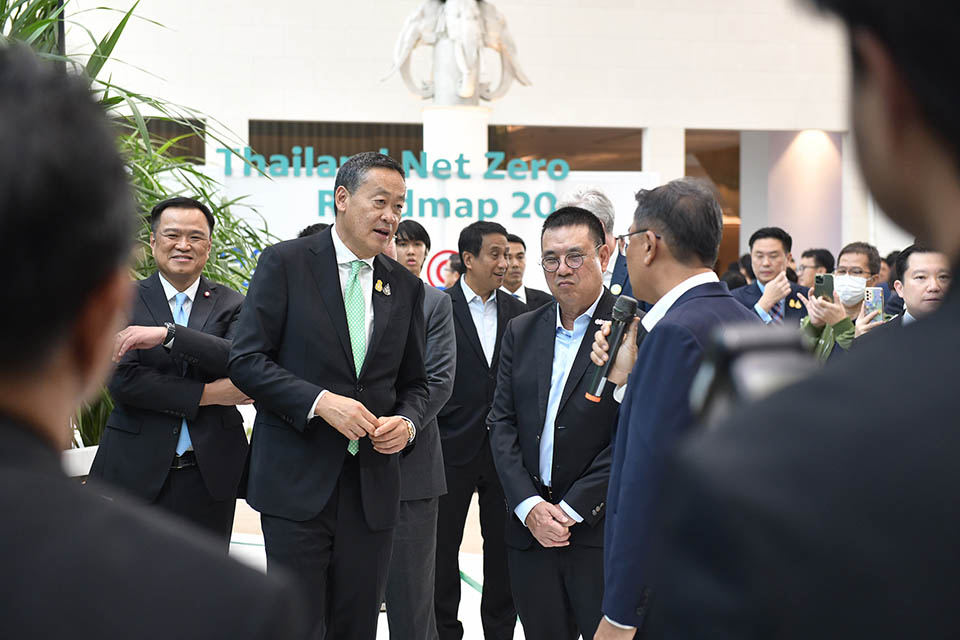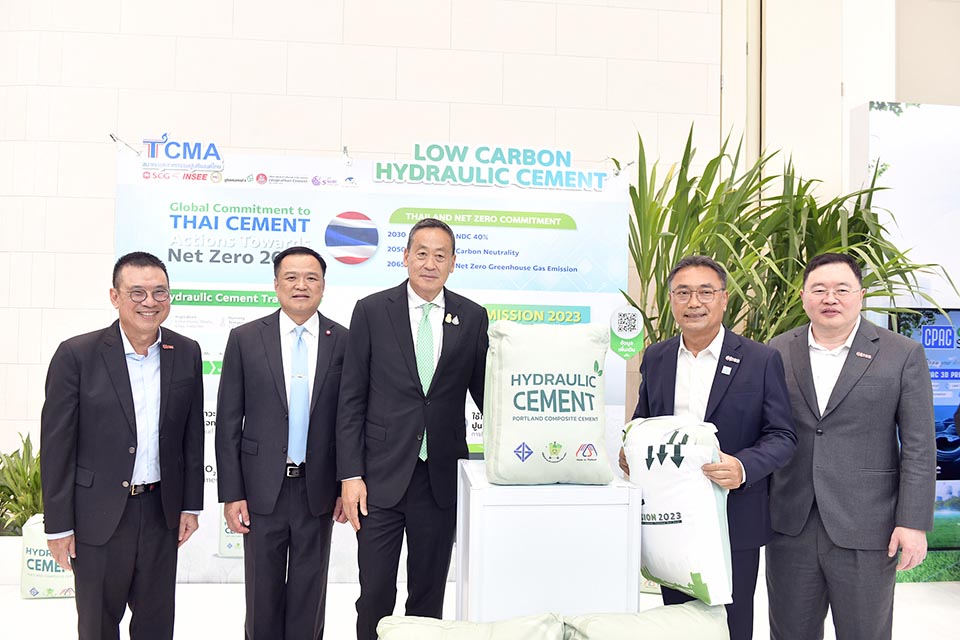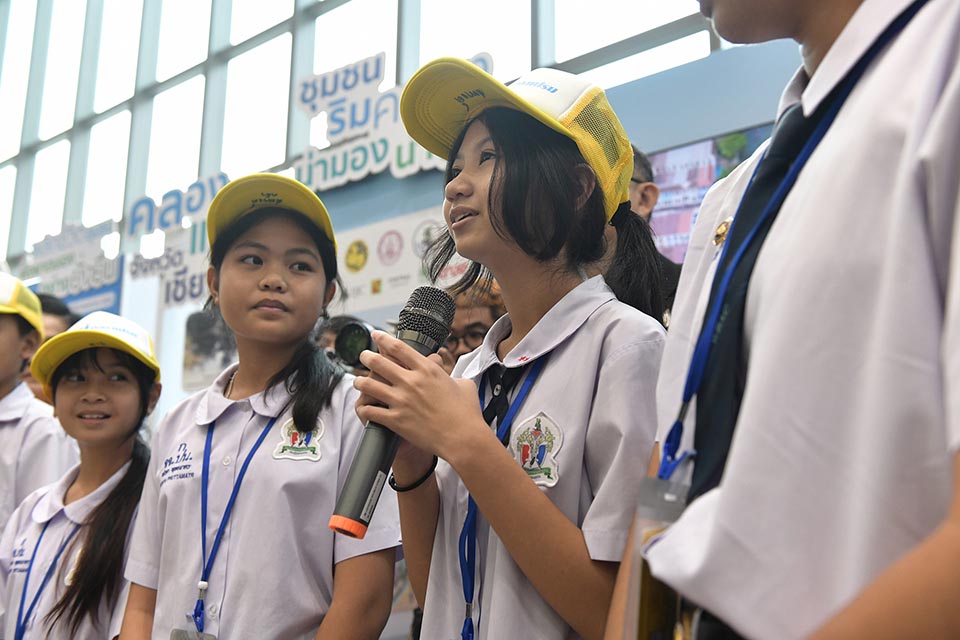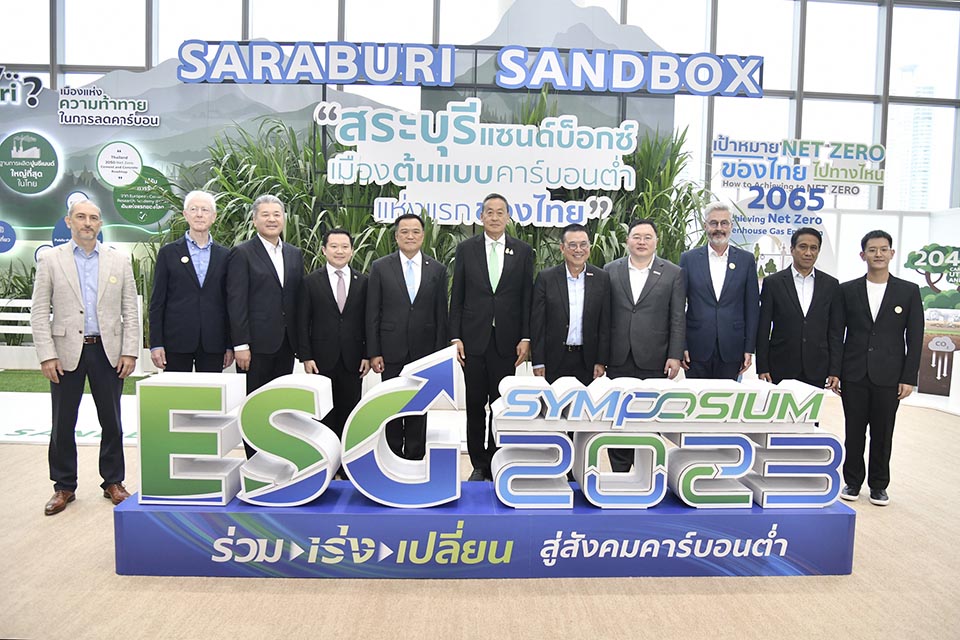
The government, private sector, and civil society convened to present a proposal to accelerate Thailand’s transition towards a low-carbon society and establish ‘Saraburi Sandbox’ as the nation’s pioneering low-carbon model city.
This initiative aims to stimulate economic growth, transition to clean energy, and ensure no one is left behind while attracting investors.
Prime Minister Srettha Thavisin commended the proposal during the ESG Symposium 2023, held for the 11th year with the theme “Accelerating Changes towards Low Carbon Society”.
The symposium brought together international chambers of commerce in Thailand, the Thai Chamber of Commerce, the Federation of Thai Industries, and SCG at the Sirikit National Convention Center.
Thammasak Sethaudom, the Executive Vice President of SCG said that throughout September, more than 500 stakeholders from the government, private sector, and civil society collectively brainstormed a proposal for the prime minister. The proposal outlined four key directions including building the ‘Saraburi Sandbox’, Thailand’s first low-carbon model city.
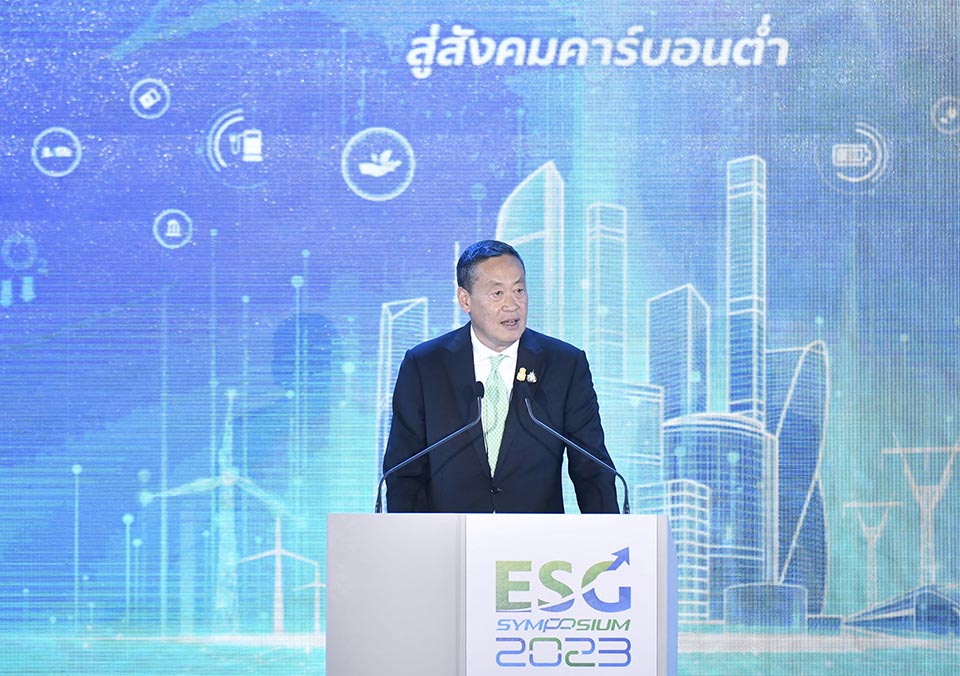
Saraburi province with its diverse economic activities, including heavy industries, agriculture, and eco-tourism, has the potential to represent Thailand’s transition to a low-carbon city.
It will serve as a learning hub for the success factors and challenges in becoming a low-carbon city, involving real industry players, relevant officials, and the impacted community.
The successful transformation of Saraburi can motivate other provinces to follow suit. Collaboration initiatives are already underway, such as the use of low-carbon cement in construction projects in Saraburi from 2024 onwards, wet-dry rice cultivation to conserve water, sustainable energy crop cultivation, and the conversion of agricultural waste into alternative energy sources, generating income for local communities and afforestation efforts in 38 locations throughout the province to sequester greenhouse gases and promote eco-tourism.
Another key direction is accelerating the transition to a circular economy, which should be put on the national agenda to achieve low-carbon economic growth. Three industries that have already embarked on this path in Thailand are packaging, automotive, and construction. Key factors for successful circular economy development include policy formulation, legislation, standardization, unified waste sorting, and collection systems nationwide.
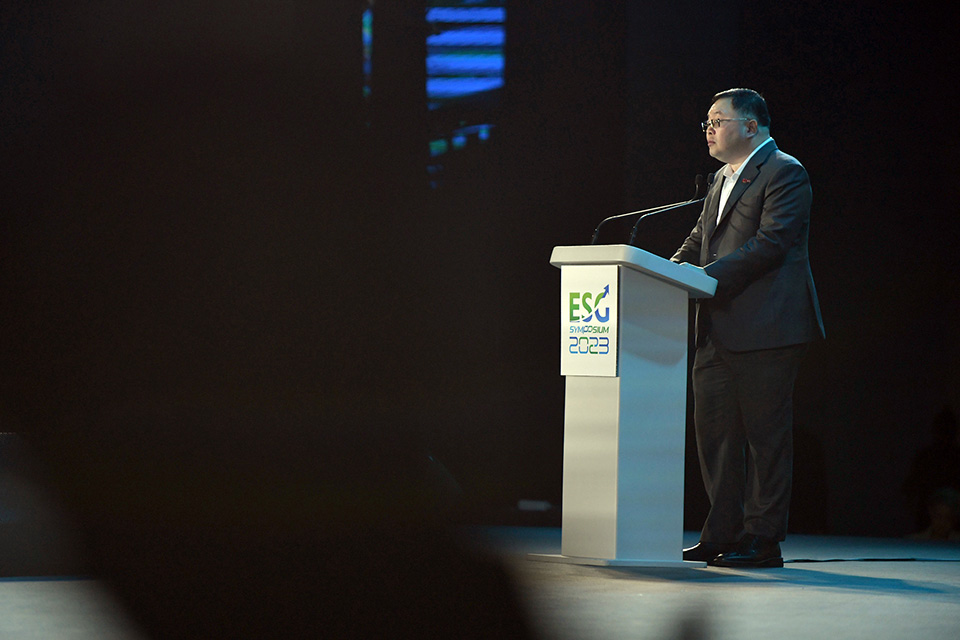
It also suggested transitioning to clean and sustainable energy and liberalizing the sale and purchase of clean energy through smart grid modernization to enhance energy accessibility for both the public and private sectors.
Moreover, vulnerable groups that cannot easily adapt such as SMEs, laborers, farmers, and communities should be categorized to allocate suitable assistance and providing them access to carbon-reducing technologies and global environmental funds.
Prime Minister Srettha Thavisin expressed great admiration for the proposal and firmly believed that collaboration among all sectors in line with the ESG (Environmental, Social, and Governance) strategy, focusing on building an economically, socially, and environmentally sustainable society, would help save the world and lead Thailand toward sustainable economic development.
He emphasized the importance of a clear roadmap for Thailand’s sustainable economic development, placing the people at the center of these efforts. He encouraged other sectors to join in, as the success of the “Saraburi Sandbox” would serve as a shining example for other cities and industries in the future. (TNA)
